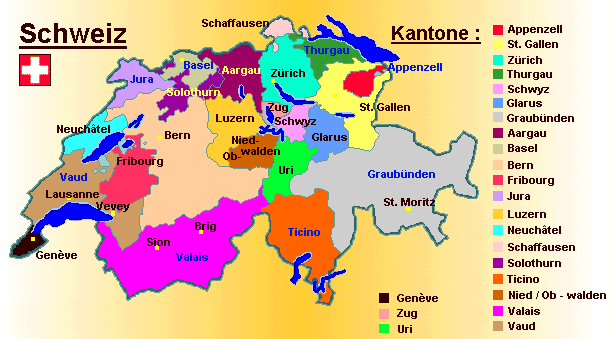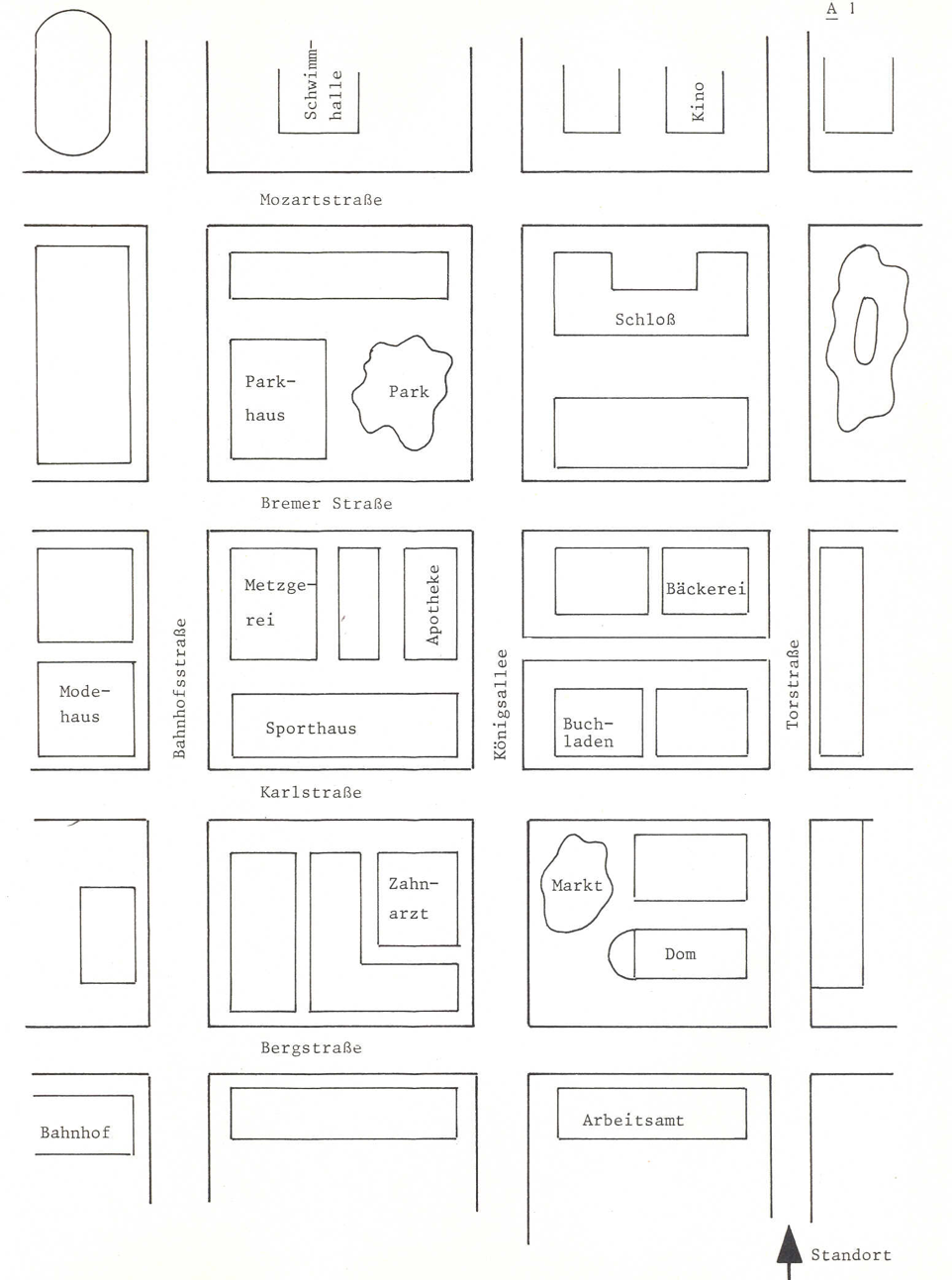| Seite 3 |
Wegbeschreibung: Asking and Giving Directions
Übung 7-3a Survival German
|
Die Schweiz
Switzerland is a landlocked mountainous country in South Central Europe, bordered by Austria, France, Germany, Italy, and Liechtenstein. With an area of 41,285 km2, the country is only slightly smaller than the Netherlands or slightly less than twice the size of the US state of New Jersey. Switzerland has a population of 8.3 million people (in 2015), capital city is Bern, largest city is Zürich. Spoken languages are German, French, Italian and Rumantsch, traditionally spoken in the different regions (cantons) of the country. According to the World Happiness Report 2015, the Swiss Confederation is officially the happiest nation on Earth. Geographically the country is divided between the Alpine region of the Swiss Alps in south, the Swiss Plateau with its rolling hills, plains, and large lakes, and the mountainous Jura in northwest. The country is a famous tourist destination for its ski resorts and hiking trails. Banking and finance are key industries, and Swiss watches and chocolate are world renowned. In the 13th century, the Gotthard Pass region in the heart of the Alps became negotiable and rapidly developed into an economically important north-south crossing point. As a result, the valleys of Uri, Schwyz, and Unterwalden at the north foot of the Gotthard massif suddenly became a focal point of European power politics, and this led their inhabitants to found the core of what was to become Switzerland with a pact of mutual assistance. Today Switzerland is a federal state in Central Europe. It is bordered by Germany, to the north, Austria and the Principality of Liechtenstein, to the east, Italy, to the south and France, to the west. Switzerland's independence and neutrality have long been honored by the major European powers and Switzerland was not involved in either of the two World Wars. The political and economic integration of Europe over the past half century, as well as Switzerland's role in many UN and international organizations, may be rendering obsolete the country's concern for neutrality.
Source: One World
Nations Online
Übung 7-3b Fakten über Die Schweiz Im BOLT.
|
Pronouns for People
(See Kapitel 5, Seite 11)As we have seen, one applies the interrogative pronoun wen, and wem when asking about people: Auf wen warten Sie? (For whom are you waiting?); Wem gibst du Geschenke zu Weihnachten? (To whom are you giving gifts for Christmas?)
Previously we have used pronouns to answer questions about people: Ich warte auf ihn. (I am waiting for him.) Ich gebe ihr einen Hut zu Weihnachten. (I am giving her a hat for Christmas.)
Übung 7-3c: Answer the German questions using the correct pronouns, as indicated in the English answers in the third column below. The first one is done for you. Related assignment in BOLT.
| denken an (+acc) | Denkst du oft an deine Familie? (Do you often think about your family?) | (Yes, I often think about them.) |
| fragen nach (+dat) | Hast du nach Harald gefragt? (Did you ask about Harald? | (Yes, I asked about him.) |
| lachen über (+acc) | Lacht ihr über eure Nachbarin? (Are you laughing about your neighbor?) | (Yes, we are laughing about her.) |
| sprechen über (+acc) | Hast du über die Kinder gesprochen? (Did you speak about the children?) | (Yes, I spoke about them.) |
| erzählen von (+dat) | Erzählt seine Freundin oft von ihrer Schwester? (Does his friend often talk about her sister?) | (Yes, she talks about her often.) |
| Angst haben vor (+dat) | Haben Sie Angst vor dem Arzt? (Are you afraid of the doctor?) | (Yes, I am afraid of him.) |
| warnen vor (+dat) | Hat der Polizist vor dem Einbrecher gewarnt? (Did the policeman warn about the burglar?) | (Yes, he warned us about him.) |
- Ja, ich denke oft an sie.
- _________________________________________________________________________________________
- _________________________________________________________________________________________
- _________________________________________________________________________________________
- _________________________________________________________________________________________
- _________________________________________________________________________________________
- _________________________________________________________________________________________
Da-Compounds
|
